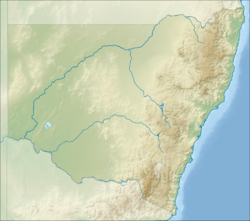 | |
 Fighter World entrance | |
| Established | 1989 |
|---|---|
| Location | Medowie Road, Williamtown, New South Wales, Australia |
| Coordinates | 32°48′11.55″S151°51′1.4″E / 32.8032083°S 151.850389°E |
| Type | Military aviation museum |
| Accreditation | RAAF Aviation and Heritage [1] |
| Collections | Military aircraft |
| Collection size | 15 |
| Curator | Sebastian Spencer |
| Public transit access | Hunter Valley Buses route 145 |
| Nearest car park | On site (no charge) |
| Website | www |
Fighter World is an Australian not-for-profit aviation heritage centre at RAAF Base Williamtown, north of Newcastle, New South Wales. It is part of RAAF Aviation and Heritage and is operated with the purpose of preserving the history of fighter operations of the RAAF. The museum's collection are predominantly fighter aircraft once operated by the RAAF. Included in the collection are historically significant aircraft including de Havilland Vampire A79-1 and Dassault Mirage IIIO A3-3, both of which were the first aircraft of their type built in Australia. [2] [3]
Contents
- Location and facilities
- Volunteers
- Aviation collection
- Australian
- Replica
- Model collection
- References
- External links
Staff include paid employees, RAAF reservists and a team of approximately 50 volunteers, most of whom have previous RAAF experience.


